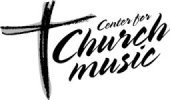Center For Church Music, Songs & Hymns

Browse Hymns:
Browse by:
We Invite You To Sing
To sing with us, 1) Click on the music thumbnail icon to view the sheet music (you don't have to read music!), and 2) Engage the audio file by clicking on the Real audio or Mp3 file.
Find Songs And Hymns
Facts:
- Lyricist: Martin Rinkart
Lyrics Date: 1636 Translator: Catherine Winkworth
Translation Date: 1858
Key: F
Theme: Thankfulness
God's faithfulness
- Composer: Johann Cruger
Music Date: 1647
Harmonization: Felix Mendelssohn
Harmonization Date: 1840
Tune: NUN DANKET
Meter: 6.7.6.7.6.6.6.6.
Scripture: I Chronicles 29:13
Devotional:
"Give thanks in all circumstances…" 1 Thessalonians 5:18
The preacher went to his pulpit and one hundred faces looked up, and in those faces the entire world was captured. As he began to speak, he smiled the smile of those who see but do not understand.
"Let us give thanks." And one hundred voices murmured, "Amen." But there was no joy in their response.
"Let us give thanks for our bodies: for legs that run, for ears that hear song...
See More
"Give thanks in all circumstances…"
1
Thessalonians 5:18
The preacher went to his pulpit and one hundred faces looked up, and in those faces the entire world was captured. As he began to speak, he smiled the smile of those who see but do not understand.
"Let us give thanks." And one hundred voices murmured, "Amen." But there was no joy in their response.
"Let us give thanks for our bodies: for legs that run, for ears that hear songs, for eyes that see beauty, for arms that hug and hands that hold."
Sadly, without a word, ten people left the service: those who were blind or deaf or crippled or paralyzed or without a limb or who lived in constant pain or with a crippling disease.
"Let us give thanks for the comforts of this world and for the rivers of wealth that have flowed on us."
And another ten left: those suffering from malnutrition, those who saw their children die of starvation and those without adequate resources to protect against the winter cold. But the preacher saw none of this.
"Let us give thanks for our wonderful minds through which we understand art and science and with which we probe the mysteries of the universe."
And several people of average intelligence blushed and a mentally impaired boy looked bewildered and a brain damaged girl stared blankly. But another ten walked to the door.
And the preacher continued thanking God for friends, for beauty and health of the worshipper’s bodies, for their correct behavior, for peace, for justice and for family.
And ten by ten they left: those who knew they were less than virtuous; those who were the victims of injustice and war, the lonely, those alienated from family.
Then the preacher looked at the congregation and saw that no one was left. "O Lord, where have they?"
"You have exalted what I never promised. When did I promise friendships, perfect health, justice and peace? Remember my servant Job. Remember my Son, Jesus."
"Then Lord, what do you give us?
"Myself."
And the preacher ran to the doorway of the church and there sitting outside, in the shadows, were the one hundred.
"Oh my friends, I have deceived you. We may have health, we may have friends, we may have justice, but all we really have is God. It was said by Job: ‘Though He slay me, yet will it trust Him.’ For this is all that is certain: God gives to us—Himself."
Reaching for each other’s hands, they all came back inside.
Once again the preacher came to the pulpit. "Let us give thanks that God himself is with us, world without end."
And one hundred voices shouted "Amen!" And there was joy in heaven!
An anonymous reading
See Less
Hymn Story:
Martin Rinkart was called to be the pastor of the Lutheran church in his hometown of Eilenberg, Germany. He arrived there just as the terrible bloodshed of the Thirty Years War was beginning. The city of Eilenberg was a walled city and it became the refuge for political and military fugitives. This, however, caused serious overcrowding, and deadly pestilence and famine swept through the city. Armies overran it three times, leaving death and destruction in their wake. The population of Germa...
See More
Martin Rinkart was called to be the pastor of the Lutheran church in his hometown of Eilenberg, Germany. He arrived there just as the terrible bloodshed of the Thirty Years War was beginning. The city of Eilenberg was a walled city and it became the refuge for political and military fugitives. This, however, caused serious overcrowding, and deadly pestilence and famine swept through the city. Armies overran it three times, leaving death and destruction in their wake. The population of Germany went from 16 million to 6 million during this time.
The Rinkart home was a refuge for the victims, even though he was often hard-pressed to provide for his own family. In the year 1637 the plague was particularly severe. At its peak, Rinkart was the only pastor remaining in Eilenberg, conducting as many as 50 funerals in a day. He performed more than 4000 funerals in that year alone, including that of his beloved wife.
Yet in the midst of this, Rinkart was a prolific hymn writer. The exact date of "Now Thank We All Our God" is in question, but it is known that it was widely sung by the time the Treaty of Westphalia was signed in 1648. It was commonly sung as a grace following meals. Since then it has become a Te Deum for Germany, sung on occasions of national thanksgiving.

